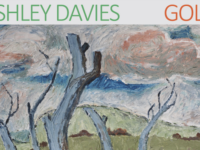Credit, or blame, Mike Oldfield for the new age movement that followed his groundbreaking 1973 effort Tubular Bells. If anything, though, his dance-oriented new sequel Tubular Beats blows that old notion to bits.
Oldfield, of course, has never shied away from rethinking his most famous album, having issued Tubular Bells II in 1992, III in 1998, The Millennium Bell in 1999 and then Tubular Bells 2003. None, however, offered such a dramatic overhaul of the original concept as does this new effort, a thunderous collaboration with Torsten Stenzel’s York music project.
The initial release by Richard Branson’s Virgin Records, Tubular Bells would go on to sell more than 2.5 million copies in Oldfield’s native UK alone, later becoming a American hit after the title track was included on the movie soundtrack for The Exorcist. The project remains the defining moment of his career, despite other notable successes.
For instance, Oldfield had a European No. 1 hit with “Moonlight Shadow,” saw Hall and Oates’ version of his song “Family Man” reach the U.S. Top 10, collaborated with Bonnie Tyler (who earlier topped the charts with “Total Eclipse of the Heart”), and — prior to his 1970s breakthrough — had worked with psychedelic music pioneer Kevin Ayers, co-founder of Soft Machine.
Oldfield joined us in this new SER Sitdown to chat about his signature work, his favorite non-Tubular album and how much being included in the opening ceremonies for the London Olympic Games meant to him …
NICK DERISO: What has brought you back to Tubular Bells, an album you recorded as a 19-year-old back in the early ’70s, again and again? Is it a desire to improve upon the original, or to explore different areas within the concept?
MIKE OLDFIELD: Tubular Bells 2 was the first ever sequel to a classic album. I wanted to explore more possibilities with the format of many short themes joined together in a complicated musically related full length piece of music. Torsten Stenzel contacted me two years ago. He is a musician and DJ, and lives in Antigua where he runs the Ministry of Sound. He came to Nassau, Bahamas, where I live, and we decided to work together making a club
album using the original samples from the 1972 recording. This became Tubular Beats.
NICK DERISO: It seems like a natural outgrowth, though certainly unseen at the time, of the repetitive, almost hypnotic nature of the original project. How does this iteration figure into things for you? Do you think you’ve adding something meaningful to its legacy?
MIKE OLDFIELD: I think the golden age of rock music was from the late ’50s to the end of the ’70s. Most of the original ideas where created then. There has been nothing really new since that time. I think that in 100 years people will look back and think: “Wow!” As for the future, I think it will be something more interactive but we have not found it yet. I look forward to the next golden age.
NICK DERISO: How difficult was it, back then, to acquire keyboard technology? How did you learn, simply by trial and error?
MIKE OLDFIELD: There were only electric organs like the Hammond, the Vox Continental and the Farfisa. I used the Farfisa, because that was the only instrument available to borrow from Kevin Ayers.
NICK DERISO: Having that kind of success at an early age must have been more than a little overwhelming. Do you feel you’ve come to terms with it? How has living so far from fame’s bright lights in the island paradise of the Bahamas helped in the process?
MIKE OLDFIELD: I have done my share of interaction with my fans and the music industry, including over 400 concerts worldwide over 40 years and thousands of interviews. I love my peace and tranquility now in the Bahamas.
NICK DERISO: You’ve said, over the years, that Tubular Bells was created by a tortured young man, someone who would eventually turn to drugs and drink to numb the pain. But it certainly doesn’t play like that. How do you account for the way the original album included so many spontaneously uplifting themes?
MIKE OLDFIELD: It was an antidote to my unhappiness and suffering at the time.
NICK DERISO: Is there a part of you that wishes folks like me would ask more questions about your other work? Is there an album, separate from the Tubular series, that you wish had garnered more attention? The electronic folk of Hergest Ridge, maybe? The intriguing classical ruminations on Music of the Spheres?
MIKE OLDFIELD: Amarok is my best work. It is totally spontaneous and hand played by myself. A one-hour, one-track work and I am very proud of especially the guitar playing.
NICK DERISO: Describe your fascination with the water, and with boats. Is that something that emerged as an interest in your adult years, or do you trace it back further into your childhood?
MIKE OLDFIELD: I am a qualified helicopter and airplane pilot, but I do not fly any more. My boat is my sanctuary and is full of the latest technology. I have simply swapped the sky for the blue waters of the Bahamas.
NICK DERISO: What was it like returning to your native England for a triumphal performance as part of London’s Olympic Games? There must have been a range of emotions, not least of which might have been a bit of trepidation over the elaborate production. Was it everything you’d hoped?
MIKE OLDFIELD: Yes, the Olympic opening ceremony was and always will be my most cherished moment — for all creative and personal reasons. Working with Danny Boyle and all the other 30,000 performers was an unprecedented joy and pleasure.
- Nick DeRiso’s Best of 2015 (Rock + Pop): Death Cab for Cutie, Joe Jackson, Toto + Others - January 18, 2016
- Nick DeRiso’s Best of 2015 (Blues, Jazz + R&B): Boz Scaggs, Gavin Harrison, Alabama Shakes - January 10, 2016
- Nick DeRiso’s Best of 2015 (Reissues + Live): John Oates, Led Zeppelin, Yes, Faces + others - January 7, 2016



